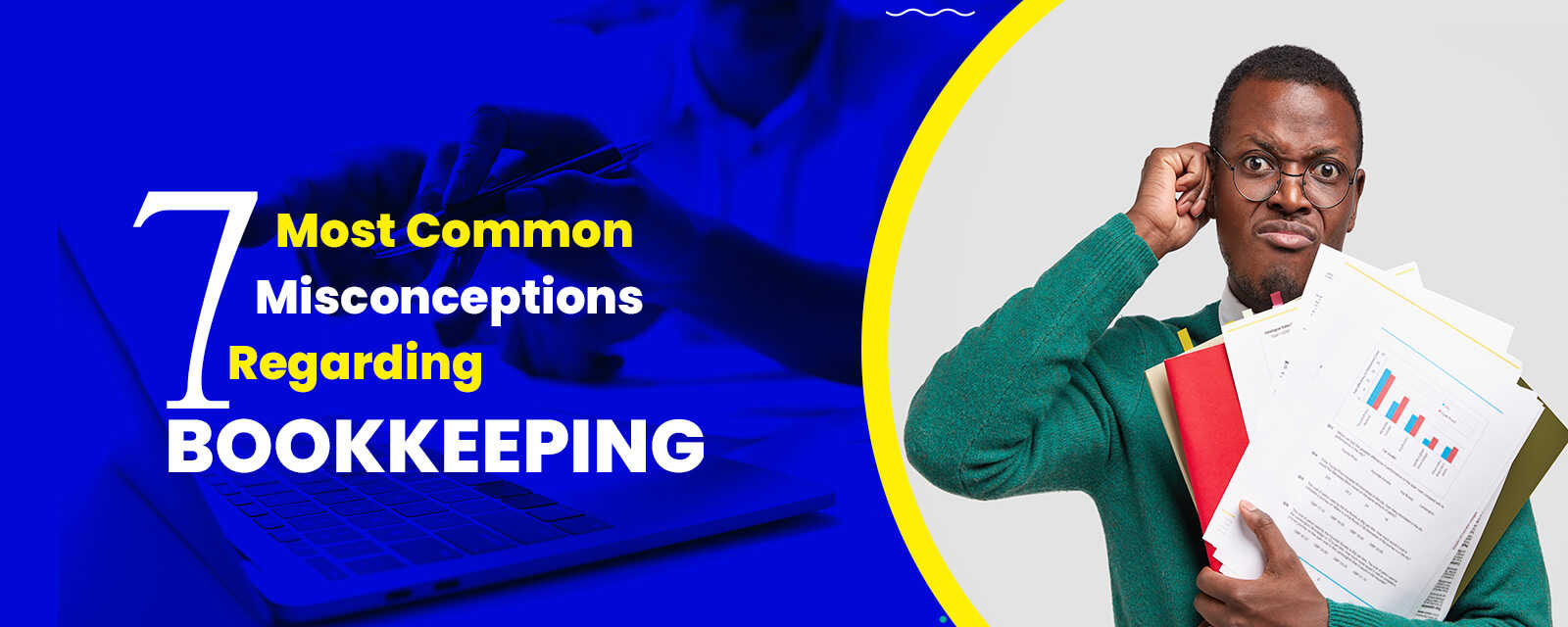small-business-tips
Top 10 Tax Deduction Strategies for E-Commerce Business
10/06/2021 7:11 AM

Without any doubt, the pandemic has shaken every aspect of our existence. Strict social distancing measures have compelled many small enterprises with physical stores to venture into a whole new arena — internet retail.
Running an internet business is no easy task, especially if you are self-employed. Navigating your tax requirements may be low on your daily to-do list, but understanding the tax requirements for e-commerce businesses may save you money in the long term.
Planning taxes and best practices may have a significant influence on your bottom line. According to Forbes, more than 90% of US company owners overpay their taxes! Why is this so? Because taxes are difficult to understand.
Overall, e-commerce in the United States rose 44.5 percent in the second quarter, the highest quarterly growth rate in more than 20 years. This big e-commerce spike may be ascribed primarily to the epidemic, but the issue for traditional brick-and-mortar retailers is: What if it isn't? We are entering a period in which the e-commerce platform will be more significant than the traditional shop long after the epidemic has passed.
New financial commitments, tax responsibilities, and accounting methods accompany this new area.
Are you considering permanently relocating your business online? How about growing further into the e-commerce space? Here's what you should know.
HOW E-COMMERCE ACCOUNTING DIFFERS FROM TRADITIONAL ACCOUNTING
Electronic business is similar to conventional trade. It also entails the trade of products. However, the trade of items takes place online. To track transactions and receive payments, technologies like email, electronic data interchange, and electronic fund transfer are employed. Some of the key distinctions between electronic and conventional trade are discussed briefly here.
Many new online retailers believe that e-commerce accounting is the same as accounting for any other type of business. In actuality, modelling your accounting after other organizations may have a significant influence on your performance. It is important to understand and be aware of the following distinctive elements that distinguish e-commerce accounting from other company sectors.
Recognizing transactional data: Bank accounts and credit cards are the most common ways for organizations to recognize transactional data. However, the majority of e-commerce transactions are located on the selling channels of enterprises (Shopify, Amazon, eBay, social media, etc.).
Online sales tax: E-commerce tax rules and regulations are complicated and continuously changing from state to state, which means you must continually check for court judgments and legislative changes.
Inventory tracking: Inventory and cost of goods sold (COGS) are the most significant figures in an e-commerce firm. Your company will need to grasp how to compute accurate COGS and inventory management, as well as how to account for inventory flow across your company.
STRATEGIES TO REDUCE TAX BURDEN
Whether you work for yourself or someone else, your earnings should be kept in your bank account as much as possible rather than going to the government. When it comes to taxes, far too many of us believe there is nothing we can do.
But don’t worry there are ways to reduce the tax burden. Here is how you can just do that!
1- Become an S-Corporation
One of the first things I advise my e-commerce clients to do is form an (S-Corp). An S corporation, commonly known as an S subchapter, is a kind of corporation that satisfies specified requirements of the Internal Revenue Code requirements. In simple words, becoming an S-Corp may save you up to 15.3 percent on your tax bill if done properly. This technique is advantageous because, if you own an LLC, you may submit an election with the IRS to be recognized as an S-Corp for tax reasons even if you still own an LLC for legal purposes.
2- Make the most of your retirement contributions
The more money you can put into retirement funds, the less tax you will have to pay. While you may not be able to enjoy that money right now, at least you are not wasting it. Instead, it stays and waits for you, growing in the while.
3- Deduction of Tax
As an online shop, you should have a solid grasp of what you may claim as a tax deduction. Begin immediately keeping track of all your costs. If you haven't already, I recommend looking over your records and being organized. By the time the 2021 tax year arrives, you should have paperwork for each deductible business cost you incurred throughout the year to submit correct claims. Internet, cell phone, software services, office supplies, travel fees, and other expenses can all be deducted. The IRS now provides a home office tax deduction to e-commerce enterprises that operate from home provided certain requirements are met.
4- Leverage investment losses
It's difficult enough to make money, but it's far more upsetting to invest and lose money. On the plus side, by selling a bad investment at a loss, you may transform losses into earnings. This can be used to offset capital gains achieved elsewhere.
If your losses match your earnings, then, you should be able to deduct any tax payable from the total. Alternatively, if your losses exceed your earnings, you can deduct up to $3,000 in losses from your regular income. This is an excellent tax-cutting option if your income was more than projected for the year and may have pushed you into a higher tax band.
5- Accountable Plan
Adopting an "Accountable Plan" is another viable option. This is an IRS-approved reimbursement scheme that allows a company to repay workers for business expenditures incurred as part of their job, which may include you as a business owner if you are also an employee of your company.
If you put up an Accountable Plan, you can deduct the reimbursed amounts as if the firm had spent the initial expenditure itself. Accountable Plans also enable people who work from home to deduct rent, telephone charges, automobile expenditures, and a variety of other expenditures.
6- Set up a Health Savings Account (HSA)
This account is comparable to a 401(k) or SEP IRA in that your contributions lower your taxable income immediately. But there's one additional benefit to it. Investing in an HSA allows you to grow your money tax-free. When you need money to pay for medical expenditures, you can take it out. Contact lenses, doctor visits, acupuncture, and other medical costs are examples of eligible medical costs.
If you have individual health insurance, you may donate up to $3,500, and if you have family health insurance, you may donate up to $7,000 a year. If you're 55 or older, you can add $1,000 as a catch-up payment.
You can only open an HSA if you already have a high-deductible health insurance plan.
7- Contributions to 529 savings plans can be deducted from state taxes (if your state allows)
Your children may appear to cost you an arm and a leg, but they can assist you with your taxes. If college is on the horizon, now is the time to figure out how to pay for it while also lowering your tax burden. Create a 529 plan.
Even if you don't have children of your own to prepare for, you may do so for cousins, nephews, friends, and grandchildren. You can even start a 529 plan if you plan to attend college in the future.
Although contributions to 529 accounts aren't tax-deductible on the federal level, the invested funds grow tax-free. Depending on the state you live in, you may be able to deduct 529 contributions from state taxes. More than 30 states and Washington D.C. either allow tax deductions or tax credits for 529 contributions.
8- Contribute to a Flexible Spending Account (FSA)
If your business provides flexible spending accounts, make use of this financial tool to shift extra money away from your tax bill. Contributions to your FSA can be made with pre-tax funds. Your FSA balance can be used to pay for eligible out-of-pocket medical expenditures (similar to an HSA).
Consider enrolling in a dependent care FSA as well. This allows you to redirect funds from the taxable income column to child care or care for a handicapped family member.
9- Organize your itemized deductions
Certain tax deductions, such as medical expenditures, charitable contributions, and mortgage interest, are only available if you itemize your deductions. With the rise in the standard deduction, it may no longer be necessary to itemize.
However, there is still a method to take advantage of those itemized deductions: group them.
You can, for example, make two years' worth of deductible payments or contributions in a single taxable year. You have the option of prepaying mortgage interest by making extra payments throughout the year.
Medical costs and charity donations might be expensive, but they can pay you back in large tax savings above and above the current standard deduction.
10- Make energy-efficient improvements to your house
You may have heard that energy-efficiency tax credits are being phased down, but don't listen to sales pitches from solar panel firms. Right now, numerous domestic renewable energy tax credits are still accessible to homeowners.
Solar panel installation and solar-powered water heater installation are among the tax credits available. Other tax incentives to consider include wind turbines, renewable-energy fuel cells for home power generation, and geothermal heat pumps.
Your tax credit might be worth up to 30% of the cost of your energy-efficient home renovation project. Furthermore, except for those claimed for fuel cell installation, there is no maximum restriction on the number of tax credits that can be claimed. There are tax credits available for your primary residence as well as any additional houses you own.
Conclusion
So, the sooner you can get your tax and accounting affairs in order, the better. You don't want to be rushing to sort things out come tax season if you're new to e-commerce. Effective tax preparation begins the moment your business activities begin. This is why hiring an accountant who understands your company goals early on is an effective method to free up some of your time, reduce responsibilities, maintain tax compliance, and ultimately save you money.
Let us know in the comments which one of these strategies worked best for your e-commerce business. Or do you have something better in mind?
Categories
Recently Posted

beginners-guide
7 Most Common Misconceptions Regarding Bookkeeping
12/10/2021 7:44 AM

beginners-guide
Top Reasons Why Accounting Marketing Fails
12/10/2021 8:35 AM

web-design
5 Reasons Why You Should Choose us to Build Your New Website
08/12/2021 12:35 PM

small-business-tips
10 Effective Ways to Promote Your Website for Free
10/02/2021 10:18 AM

small-business-tips
How Having a Bad Website Can Hurt Your Business
15/02/2021 1:27 PM
